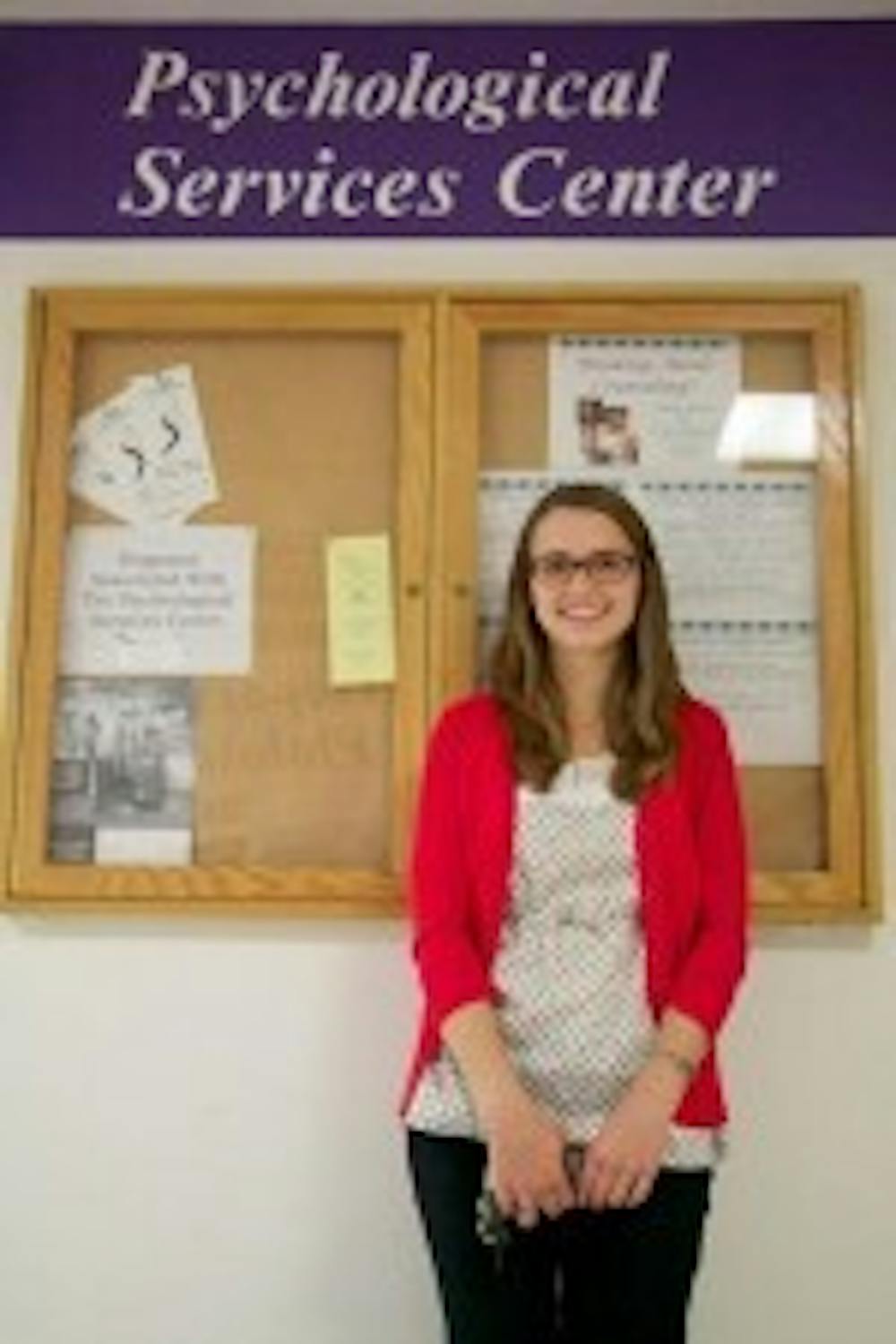*Katie Johnson a freshman occupational therapy major, had her first cigarette at the age of 13. She started smoking cigarettes regularly when she was a freshman in high school, and it has been about a month since she quit.
"[Smoking] is a temporary stress reliever, but I've found other methods to relieve stress in a healthier way," Johnson said. "Smoking cigarettes has definitely hurt my respiratory system, especially when I was swimming for my high school team. I constantly felt short of breath."
UB believes it has the solution to help students like Johnson break the habit.
Primary clinician Lisa Germeroth, a graduate student in the clinical psychology Ph.D. program, has created UB QUIT, a program that offers students a new way to quit smoking. So far, Germeroth said the program has had very successful results as approximately 85 percent of group members have become smoke-free.
Germeroth said she saw many students who wanted to quit smoking come through the Psychological Services Center, but the center never had a good recommendation of smoking cessation programs. Germeroth was eager to find a program based on up-to-date research that offered students the opportunity to quit smoking.
The three-week program costs $65 and provides a combination of group therapy sessions and nicotine replacement treatment. During each group therapy session, clinicians - who are advanced clinical psychology students working toward their Ph.D. - prepare each participant for their "quit day."
"Quit day" is the day that clients decide they will no longer touch another cigarette. The clinicians help each participant prepare for his or her individual "quit day" by focusing on how to confront behaviors that correlate with smoking, such as drinking coffee or driving.
A considerable amount of the time in treatment is also devoted to encouraging individuals to properly use nicotine replacement methods, such as a nicotine patch, gum and lozenges.
Once a person reaches quit day, there are treatment sessions used as a review that also introduce new skills and ways to reward oneself.
Germeroth said she looked into suggestions made by the U.S. Public Health Service for treating nicotine dependence when she was still creating the QUIT program to ensure the program provided the most current research.
Almost 29 percent of college students have smoked cigarettes, according to a 2009 survey by the American College Health Association.
"Young smokers are more likely to become tobacco addicts and experience other long-term problems associated with smoking," the survey noted. The study also showed that smoking greatly affects a student's grades and social life and can lead to other drugs.
The American Lung Association states that every day, almost 3,900 children under the age of 18 try their first cigarette.
"Cigarette smoking during childhood and adolescence produces significant health problems among young people, including an increase in the number and severity of respiratory illnesses, decreased physical fitness and potential effects on the rate of lung growth and maximum lung function," according to the American Lung Association's website.
Johnson fell into smoking at a young age. Most adult smokers begin smoking as teenagers, according to the American Lung Association.
"My mother, aunts, uncles and my father smoke cigarettes," Johnson said. "I've noticed that they really depend on cigarettes, making it so difficult for them to quit."
UB's QUIT program is focused on providing the UB community with the proper guidance to live a smoke-free life. They are currently following up on participants to see their progression since the treatment has ended.
"My main goal for the QUIT Program this year is to run one treatment program each month," Germeroth said. "Our schedule has been more intermittent in the past due to a lack of interested callers, which seemed to have come largely from the community not knowing about the services we offer."
Although she has never had personal experience smoking, Germeroth said she was motivated to help people quit smoking due to the lack of programs available in the Buffalo area.
The program is available to everyone who is at least 18 years old, from heavy smokers - 10 or more cigarettes a day - to light smokers. The three-week treatment sessions will start the first weeks of October, November and December, and group sessions are held three times a week on Mondays, Wednesdays and Fridays from 6-7:30 p.m.
"I have long known how difficult it is for people to quit smoking," Germeroth said. "I wanted to be able to provide smokers with a program that will truly help them quit smoking and stay quit."
The QUIT program has been treating smokers for two semesters, and although the start of the program was gradual, it has been a very effective process, according to Germeroth. She said the nicotine replacements used in the program required a lot of time and research, and the group has recently gotten more funding from the Psychological Services Center than it got at its outset.
Germeroth believes the recent boost in publicity will result in more frequent treatment groups, which will increase the program's profitability.
*Students names have been changed because they fear retaliation
Email: features@ubspectrum.com





